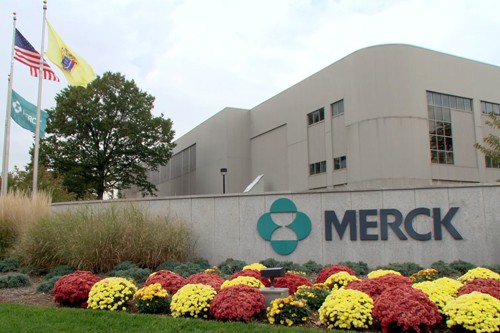
Merck & Co’s purchase of Afferent Pharma last year was all about a candidate drug for chronic cough – so it will be celebrating now the drug has just shown promise in a phase II trial.
Merck (known as MSD outside North America) stumped up $500m upfront to buy Afferent last June – with another $750m in milestone payments – to get its hands on the company’s pipeline of compounds that target P2X3 purinergic receptors.
At the highest dose tested (50mg orally twice daily), Afferent’s lead drug AF-219 – now called MK-7264 – reduced the number of coughs per hour by 37% compared to placebo, although two lower doses (7.5mg and 20mg) were ineffective. Now Merck says it plans to discuss the design of phase III trials with regulatory authorities to take the drug forward.
At the moment there are no approved therapies for suppressing chronic cough – defined as lasting for eight weeks or more – which is estimated to affect up to 10% of people in the US. Around 17% of persistent cough sufferers derive no benefit from current treatments such as opioid drugs and corticosteroids, and in some cases the symptoms can persist for months or even years.
“There is a significant unmet need for effective treatments for chronic cough,” commented Jacky Smith, professor of respiratory medicine at the University of Manchester and one of the investigators in the trial. “We are encouraged by the results of the MK-7264 study and look forward to further evaluations of this investigational therapy.”
P2X3 receptors are thought to become over-activated in chronic cough, playing a role in the hyper-sensitisation of neurons in airways that trigger the cough reflex.
The Afferent purchase also gave Merck an in-road into the emerging market for idiopathic pulmonary fibrosis (IPF), a market tipped to be worth more than $3bn in the next few years.
Two drugs have been approved for IPF – Roche’s Esbriet (pirfenidone) and Boehringer Ingelheim’s Ofev (nintedanib) – but while they can delay disease progression neither has a significant impact on symptoms such as cough. MK-7264 is currently in early-stage testing for IPF.




